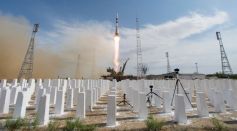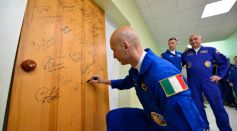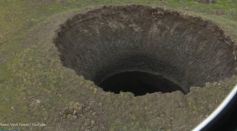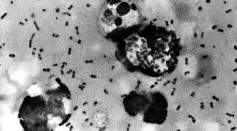Tags: Russia

Russian Scientists Want to Clone 3,000-Year-Old Siberian Warriors Using Preserved DNA in Permafrost
First Movie in Space: Russia Racing to Beat Tom Cruise and NASA Movie As It Starts to Cast Stars
Russia Tests New Space Anti-Ballistic Missile: Four Times Faster Than AK-47 Bullet

Russia to Send One Female Cosmonaut Next Year as Country Quits the ISS

Is Russia Going Back to the Moon This Year? Here's What Officials Claim

Moon Exploration: Why China and Russia are Teaming Up for a Lunar Base
Reindeer Cyclone Explained: Drone Captures Moment Deers Defending Fawns

NASA Astronaut Assigned For Soyuz Mission Could Spend Year in Space to Make a Russian Film

Russia, China Eyes Placing Humans on Lunar Space Station; Are They Really Up for Space Race?

Russia Commissions Neutrino Telescope at Lake Baikal; Is It An Underwater Telescope?

Russia and China Join Forces to Build Station Around the Moon, Rivaling NASA’s Planned Gateway

Russian COVID-19 Vaccine Was Highly Effective in Trial, Study Shows
Russian Archaeologists Create a 3D Model for a Section of the Tepsei Site
Lakhta Center In Russia Is Named Skyscraper of the Year

Russian Scientist Reinfected Himself COVID-19; Does Herd Immunity Really Work?
Russia Declares Venus a Russian Planet
Siberian Permafrost Perfectly Preserves Cave Bear
Russian Opposition Poisoned With Soviet-era Novichok Agent, but What Is It Exactly?

"Colossal Forces of Nature" Blast 165-ft Deep Hole in Russian Tundra

Some Bacteria Have Incomplete Ribosomes, a New Study Reports
Most Popular

Recycling Myths vs Facts: What Actually Gets Recycled and How to Do It Right

What Is Conservation Biology? Key Strategies to Protect Species and Habitats

Allergies Explained: What Happens in Your Body During an Allergic Reaction

Types of Pollution: Air, Water, Soil, Noise, and Their Health Effects




